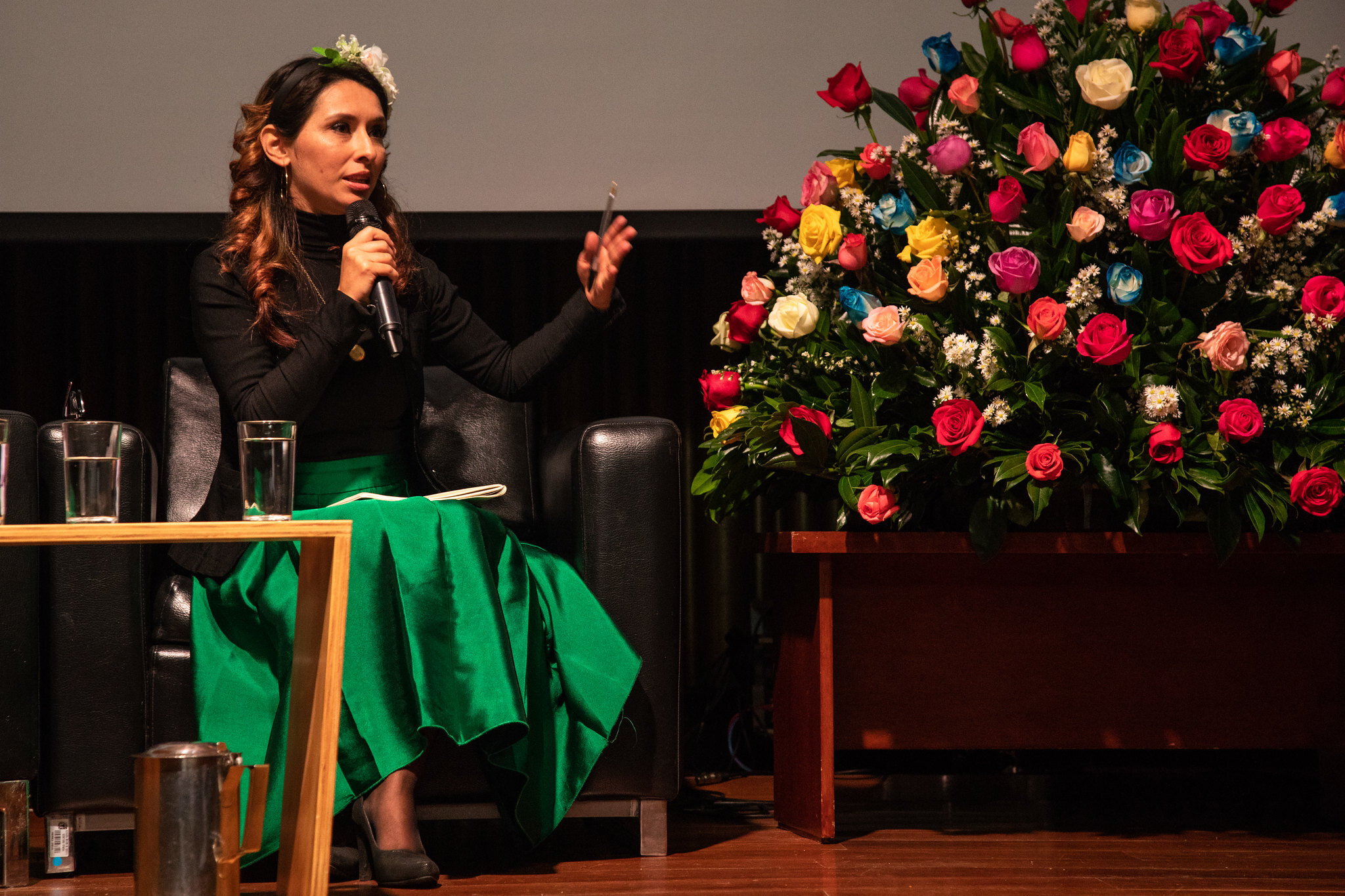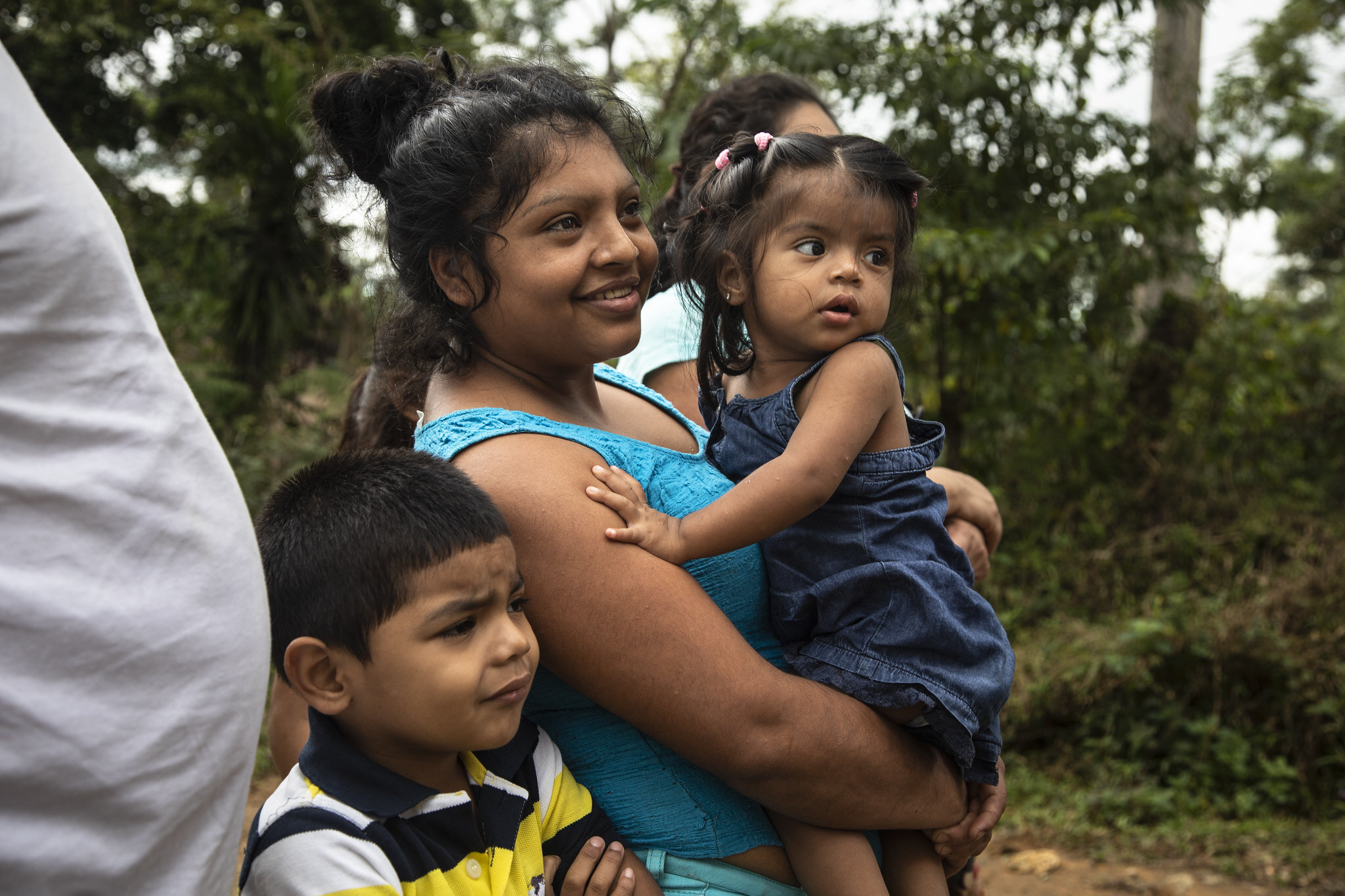
On-line Resource Hub:
Best Practice Forum Asia Pacific
Best Practice Forum: Asia Pacific
Sharing Strategies to Confront Corporate Abuse in the Mekong Region
Bangkok, Thailand | 16th–18th July 2025
Objectives of the Forum
The central objectives of the Forum were:
To create a space for lawyers and community activists to share ideas (based on their own experience) on legal and other strategies to confront corporate abuse.
To allow lawyers and community activists to forge links.
The focus is on capacity building to encourage legal action against companies for environmental damage/ human rights violations.
Full programme and other information in English:
DAY 1 - 16 July 2025
Session 1: Considerations prior to commencing a case
This session focused on the steps to consider before commencing a corporate accountability legal case. The session included consideration of whether to bring a civil or criminal case; preliminary considerations on the strength of evidence available – does there appear to be strong evidence linking the company to the environmental damage or human rights violations?; the costs of bringing legal action and possibilities of securing funding; identifying the corporate and financial actors behind harmful projects; identifying the risks. of taking legal action including security risks or disagreements between Parties bringing a case.
Chair: Nicki Lees - Maurice Blackburn Lawyers 📄 Download materials
Speakers:
Craig Bradshaw - Inclusive Development International 📄 Download materials
Jacob Phelps - Conservation Litigation to present 📄 Download materials
Susi Bascón - Roots2Justice
Session 2: Identifying where to bring the litigation: Sharing experiences of taking corporate accountability cases to a domestic court
The session focused on considerations in bringing a case to a domestic court. It included discussion of opportunities for, and challenges related to bringing cases related to labour rights and conditions in Cambodia. The Community Resources Centre Foundation (CRC) discussed work the organization had undertaken to support a community pursue civil litigation proceedings against a mining company in Thailand which resulted in the community securing compensation for damage to homes and for mental distress resulting from the mining activities. Another case supported by CRC resulted in villagers being awarded compensation by a Thai court for violation of their rights after a gold-mining company had filed a SLAPP case against the community. ELAW provided an overview of types of domestic litigation: private civil litigation; private criminal litigation which is available in some countries including Thailand and administrative litigation which allows government agencies to be sued for unlawful actions or omissions; environmental public interest litigation which allows NGOs and individuals in some jurisdictions to sue for the enforcement of environmental laws. Key considerations were considered including the burden of proof required, the costs of litigation; time required to pursue legal proceedings and potential security threats to plaintiffs or communities.
The Environmental Legal Assistance Center (ELAC) discussed civil proceedings brought against mining companies in the Philippines. A Philippines court found mining companies liable for the adverse effects of mining suffered by farmers as a result of non-compliance with the Environmental Protection and Enhancement Program.
Chair: Piseth Duch – Lawyer for Business & Human Rights Law Group (BHRLG) and Business and Human Rights Resource Centre, BHRRC.
Speakers:
Piseth Duch – Lawyer for BHRLG and BHRRC 📄 Download materials
Sor.Rattanamanee Polkla - Community Resource Centre (CRC) and Chalermsri Prasertsri - Mekong Legal Network (MLN) 📄 Download materials
William Schulte – ELAW 📄 Download materials
Raffy Pajares - Environmental Legal Assistance Center (ELAC) 📄 Download materials
Session 3A: Evidence needed to hold corporates to account: identifying and accessing corporate information
This session focused on discussing gathering of evidence of corporate misconduct and corporate structures to use in a legal case. SOMO discussed different corporate ownership structures the importance of understanding corporate structures and emphasized the importance of identifying different actors involved in corporate activities. Understanding corporate structures is essential for developing litigation and campaign strategies. SOMO can support community-based organizations to analyse corporate structures and finance sources through its ‘The Counter’ project. ELAW provided an overview of domestic laws and regulations in Mekong countries, Indonesia and Philippines which provide public access to information on corporate and government activities impacts on the environment. Inclusive Development focused on accessing information on corporations. Information on public companies may include information in annual reports and disclosures to stock exchanges. Information on private companies may be secured from alternative sources, for example, disclosures made to secure funds. Witnesses, video and photographic material may provide crucial evidence of corporate wrong-doing. The Business and Human Rights Resources Centre discussed practical tools for gathering evidence and discussed types of evidence. These include documentary evidence, statements from victims, experts and others.
Speakers:
Misa Norigami - Centre for Research on Multinational Corporations (SOMO) 📄 Download materials
William Schulte – Environmental Law Alliance Worldwide (ELAW) 📄 Download materials
Craig Bradshaw - Inclusive Development International 📄 Download materials
Piseth Dutch – BHRRC 📄 Download materials
Session 3B: Other tips for Gathering Evidence How to gather evidence that is reliable and has probative value
This session expanded on the theme of gathering evidence. Satya Bumi, an Indonesian environmental campaign organization, discussed its work on gathering evidence on environmental harms caused by Nickel mining on the island of Kabaena. Roots2Justice ran a workshop designed to encourage thinking on possible strategies to secure evidence and discussed what constitutes strategy.
Speakers:
William Schulte - ELAW
Dhany Alfalah - Satya Bumi 📄 Download materials
Peter Drury - Roots2Justice - Brainstorm discussion based on a brief scenario particularly focused on evidence patterns 📄 Download materials
SESSION 4: Discussion Period
A space for those attending the conferences to discuss topics raised during the day.
Facilitator: Richard Lord and Peter Drury at Roots2Justice
Session 5: Identifying where to bring the litigation: Taking a case to a foreign domestic court
Corporate Accountability Lab provided an overview of legislation – Alien Tort Statute, Trafficking Victims Protection Reauthorization Act, State tort claims, Tariff Act Section 307 and Foreign Legal Assistance Act – Section 1782 - which provide opportunities to file corporate accountability cases for harms committed abroad to United States courts.
Speaker: Avery Kelly – Corporate Accountability Lab, CAL 📄 Download materials
Session 6: Corporate capture: challenges and shared learnings to overcome these
This session focused on the capture of legislatures, regulatory agencies and law enforcement entities by corporate interests to advance their economic interest and how such tactics impact negatively on grassroots communities. The Accountability Council provided a definition and an overview of Strategic Lawsuits Against Public Participation (SLAPPs) and how these have been used in Thailand. The Business and Human Rights Resources (BHRRC)provided an overview of the situation facing human rights defenders. A report released by BHRRC in May 2025 found that 75% of attacks in 147 countries were carried out against climate, land and environmental defenders. The most common forms of attack against human rights defenders were killings, harassments, SLAPP proceedings, intimidation. The organization registered over 350 SLAPP cases globally mainly in the USA, Honduras, Peru, Thailand, Cambodia, and the Philippines. The mining sector has consistently been the most dangerous sectors for human rights defenders around the world, followed by agribusiness, fossil fuels and increasingly the renewable energy sectors. Borislav Petranov led a workshop discussion focused on the risk to activists involved in litigation related to seeking corporate accountability and protection strategies.
Chair: Richard Lord – Roots2Justice – General introduction of what is meant by corporate capture/State-Corporate Alliance 📄 Download materials
Speakers:
Sutharee Wannasiri – Accountability Council and Sor.Rattanamanee Polkla - CRC 📄 Download materials
Lady Nancy Zuluaga Jaramillo - BHRRC
Borislav Petranov – Independent Consultant
Workshop discussion led by Borislav Petranov with interventions by other presenters as appropriate 📄 Download materials
Session 7: Complaints to the International System: UN Complaints, OECD or other international mechanisms
Shanta Martin, an Independent Examiner for the Australian Government’s National Contact Point for Responsible Business Conduct (AusNCP), provided an overview of the OECD Guidelines for Multinational Enterprises and explained the role of National Contact Points. The presentation was followed by a discussion on presenting a complaint under the OECD system and participants shared their experiences of presenting cases to National Contact Points.
Chair: Nicki Lees - Maurice Blackburn Lawyers
Speakers:
Shanta Martin – Barrister Ah Ket Chambers/Independent Examiner OECD For the Australian National Contact Point
Session 8: Non-judicial redress mechanisms & pressure points
In this session Dr Ebony Birchall of Business and Human Rights Centre and Access to Justice Lab at Macquarie University discussed research into why some human rights campaigns are successful. The research points to the importance of identifying pressure points and ensuring the development of multiple strategies. Dr Birchall also referred to the importance of shareholders activism and involving National Human Rights Institutions. The Global Legal Action Network, GLAN, referred to work the organization has been involved in which has focused on the Grasberg mine in West Papua. Effort in this case has been to put pressure on financial pressure points and this has included approaches to the London Metals Exchange and engagement with the UK’s Financial Conduct Authority.
Chair: Nicki Lees - Maurice Blackburn Lawyers
Speakers:
Ebony Birchall - Macquarie University
Nicki Lees - Maurice Blackburn Lawyers
Stéphanie Caligara - Global Legal Action Network, GLAN
Q and A - 10mins
Session 9: Identifying where to bring the litigation: Taking a case to a foreign domestic court
This session focused on the resistance by communities facing land-grabbing by a Thai company in the Oddar Meanchey province of Cambodia and the work of Equitable Cambodia which supported the communities in legal actions. The case was brought to Thailand where it was explained, the legal framework for class actions is stronger than in Cambodia where amongst other challenges, there was a risk against community plaintiffs. Lessons Learned from this work:
Cross-border litigation can be a powerful tool when domestic avenues are blocked.
Community-led action, supported by legal expertise and international solidarity, can yield results.
Women’s leadership in grassroots justice movements is vital and transformative.
Richard Lord KC of Roots2Justice discussed how and reasons for bringing cases to English courts. English courts have developed jurisprudence that allow for parent companies to be held accountable for the actions of their subsidiaries. Success depends on strong evidence.
Chair: Shanta Martin – Barrister Ah Ket Chambers/Independent Examiner OECD for the Australian National Contact Point
Speakers:
Sor.Rattanamanee Polkla – CRC, Leng Sarorn, Equitable Cambodia, Hoy Mai – Cambodian community representative
Nicki Lees – Maurice Blackburn Lawyers
Richard Lord – Roots2Justice
[Avery Kelly, CAL – will present at the beginning of the day.]
Q and A
Session 10: Identifying Financial Resources
In this session Borislav Petranov, an independent consultant, provided an overview of the challenges of securing resources from foundations. In his presentation Borislav Petranov stressed the importance of being clear about the goals for the project for which funding is being sought; the strategy for achieving these goals; and the risks the project might face. He also underlined the importance of highlighting how the work being undertaken is unique. In his presentation, Oscar McClaren of Maurice Blackburn Lawyers explained the role of third-party funders in covering litigation costs in return for a share of any damages if a case succeeds. In his presentation Oscar McClaren stressed the importance of being in possession of a clear legal strategy in advance of engaging with a funder. Martin Hyde of Maurice Blackburn Lawyers spoke about their Claims Funding International, a litigation funding company dedicated to helping claimants around the world gain access to justice. The funding they provide enables victims of corporate misconduct to seek justice and reparation, without the risks, costs and inconveniences of managing the litigation themselves. Claims Funding International is owned by Maurice Blackburn Lawyers - a leading class action law firm in Australia.
Facilitator: Susi Bascón at Roots2Justice
Speakers:
Borislav Petranov - Independent consultant
Oscar McClaren - Maurice Blackburn Lawyers
Q and A
Session 11: Discussion Period
A space for those attending the conferences to discuss topics raised during the day.
Facilitator: Peter Drury and Richard Lord at Roots2Justice
Session 12: Moot Court Stage 1
Facilitators: Richard Lord – Roots2Justice, Sor.Rattanamanee Polkla – CRC, Piseth Duch – BHRLG and BHRRC.
During the third day of the conference participants took part in a moot court exercise. Those attending the conference were divided into different groups and played the role of plaintiffs and defendants in a fictitious litigation case. Representatives of plaintiff and defendant groups presented their arguments to a panel of “judges” who after deliberation issued a ruling. The exercise sought to provide participants with an opportunity to consider the different challenges in presenting a legal case and practical ways to integrate some of the learnings imparted during the two previous days of the Best Practice Forum.
Session 13: Moot Court Stage 2
Facilitators: Richard Lord – Roots2Justice, Sor.Rattanamanee Polkla – CRC, Piseth Duch – BHRLG and BHRRC.
During the third day of the conference participants took part in a moot court exercise. Those attending the conference were divided into different groups and played the role of plaintiffs and defendants in a fictitious litigation case. Representatives of plaintiff and defendant groups presented their arguments to a panel of “judges” who after deliberation issued a ruling. The exercise sought to provide participants with an opportunity to consider the different challenges in presenting a legal case and practical ways to integrate some of the learnings imparted during the two previous days of the Best Practice Forum.
Topics and themes
From our consultations with grassroots activists and organisations, we have identified a set of pertinent topics and themes that will guide the activities of the Best Practice Forum. Click on each topic to learn more:
Corporate Governance, Accountability, Human Rights and Environmental Due Diligence
Using Foreign Courts to Access Justice
Research Tools for Gathering and Presenting Evidence
Building a Legal Case and Requesting Information
Register your interest
Whether you are a lawyer with expertise in the field of environmental law, corporate accountability or climate justice, or you are a grassroots rights defender seeking to explore new legal approaches and build your legal resilience, please get in touch and express your interest.




